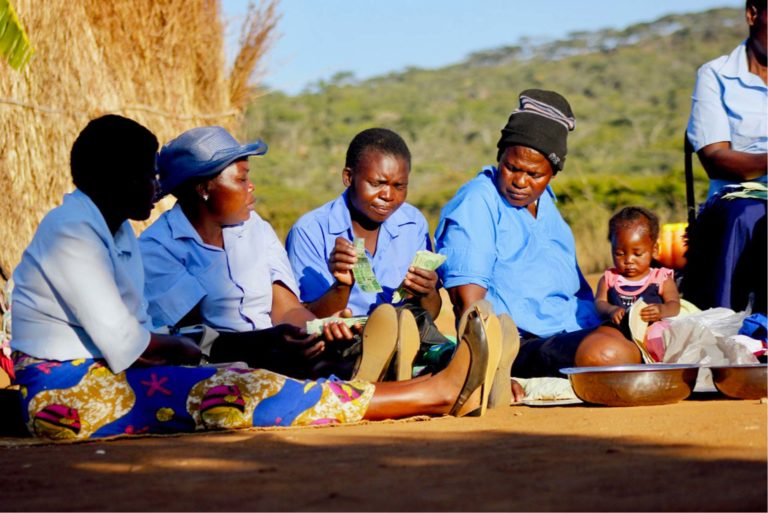Hand in Hand Zimbabwe, a local non-profit organisation, is this year targeting to empower 80 percent of disadvantaged women and young girls in seven national districts it is operating in through its poverty alleviation interventions.
HIH is using its five key projects, implemented in Bulilima, Nkayi, Gwanda, Chikomba, Shurugwi, Churumanzu and Lupane, to bring about economic transformation to various women living in these marginalised areas.
Since 2015, the organisation has supported over 8000 women and youth through entrepreneurship training and access to credits for resource limited and marginalised people living in the above mentioned districts.
Research has shown that women are key drivers of economic growth and that wealth in the hands of women leads to much more equitable outcomes in terms of the quality of life of families and communities.
Hand in Hand Zimbabwe Deputy Director of Programs Emmanuel Makiwa said the organisation decided to target 80 percent women after realising that the shrinking economic activities in the country have caused a perceivable reduction in household incomes and left 80 percent of the population, mostly located in rural areas, living below the World Bank international poverty line of US$1.90 per day (established 2015) and women and youth are among the most affected groups.
“These highly vulnerable groups are the most prone to suffer economic, social and environmental shocks. At the same time, they represent fundamental pillars of the Zimbabweans´ communities. Women are predominantly the breadwinners in the rural areas and are the primary keeper of the household,” he said in an interview.
“Despite their key role, they often dispose only of a fraction of the generated income and own a nominal percentage of assets in terms of land, farming and credit. In addition, rural women have limited space in decision-making and economic development in both the family and community,” Makiwa added.
He further indicated that youths are also largely excluded from the economic development.
With diminishing opportunities for formal employment and secure incomes, most young people are highly dependent on their families and are forced to subsist on informal economic activities.
“Those who should be driving the regeneration of the Zimbabwean economy are instead the ones most threatened by decreasing opportunities in terms of employment and investments,” Makiwa said.
He noted that the organisation will continue to support women and youth entrepreneurs in rural areas through entrepreneurial technical skills training, marketing and business managerial skills such as savings and elementary financial management.
HIH will also strive to provide a fund to support some of the emerging businesses in the marginalised areas.
Makiwa said inadequate entrepreneurial and technical skills, as well as financial support and market linkage have been a major hindrance for women and youth entrepreneurs in the rural areas
“The absence and inaccessibility to microfinance schemes is another element that has adversely hindered development opportunities for rural entrepreneurs. Insufficient funds to create or enhance economic activities are often the reason at the basis of the inability to escape the poverty trap,” he said.
Most rural folks are facing high economic vulnerability, social exclusion and, in many cases, food insecurity.
Jennifer Kabete a beneficiary from rural Shurugwi, who now owns a viable business in the district, said HIH is really working tirelessly to empower women in rural Zimbabwe.
“Most women in this district have been empowered by Hand in Hand Zimbabwe and I pray that they continue to reach out to more,” she said.
The conditions of these rural vulnerable groups are further worsened by the degrading conditions of the local environment.
Frequent droughts have become a common feature of the region, with severe droughts occurring every 3-5 years.
These social, economic and environmental conditions are particularly harsh in both Matabeleland North and South regions.
The two provinces are some of the least developed in terms of infrastructure, hence employment opportunities are limited.
Several other philanthropists, government and nonprofit organisations have, however, slipped in to help the rural folk. Recently Econet founder Strive Masiyiwa and his wife Tsitsi announced a US$100 million revolving fund for the support of rural businesses in Zimbabwe.
Hand in Hand Zimbabwe is a non-Profit organization that helps resource limited and marginalized people in rural communities, particularly women, to create better livelihoods for themselves and their families through its flagship series, the Jobs Creation Programme (JCP).
JCP encompasses a self-help approach that is premised on a four pillar model involving Social mobilization into self-help groups (SHGs), Training in entrepreneurship and economic development, Facilitating access to microloans and Facilitating market linkages and value addition.
Apart from the Jobs Creation Programme, the organisation has over the past three years incepted the Motivated and Entrepreneurial Youth (MEY) Project, Community Upliftment Project (CUP), Green Enterprises Project (GEP) and Jobs for Zimbabwe.
The organisation is presently supporting communities in seven districts namely Bulilima, Chikomba, Chirumanzu, Gwanda, Lupane, Nkayi and Shurugwi.
Hand in Hand Future Trust Zimbabwe is part of the HIH Network. The Network is a group of Hand in Hand organizations that have a global shared vision to alleviate poverty through job creation.
HIH Zimbabwe also commits itself to implementing sustainable interventions that contribute to the attainment of Sustainable Development Goals (SDGs) such as No poverty, Zero Hunger, Good health and well being, Gender Equity, Climate Action, Life on land and Partnerships for the goals.

